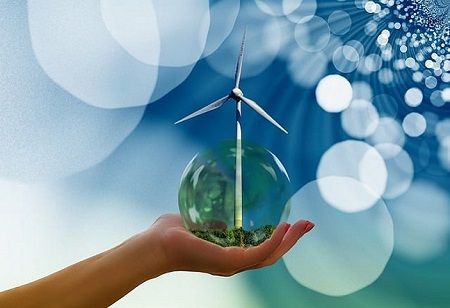
Philippines made a significant stride with establishing Makiling-Banahaw and Tiwi geothermal fields, which have contributed approximately 10% of the nation's entire power generation with an installed capacity of more than 1900 megawatts. Presently, the nation's geothermal energy is focused in the Visayas and Luzon areas, where volcanic activity is dominant. The Philippines' commitment to geothermal resources delivered a sustainable and stable power supply and decreased dependency on imported fossil fuels. This showcases the enormous potential of geothermal energy to deliver reliable, clean and sustainable power across different areas of the world.
As more organizations leverage geothermal resources, the world moves closer to a future powered by eco-friendly solutions that significantly benefit the economies and environment. It is significant to understand how geothermal energy can achieve corporate sustainability goals and its advantages over other energy sources.
From a company's point of view, a reduced carbon emission is one of the major sustainability initiatives. It even plays a pivotal role in supporting geothermal energy in line with sustainability goals by lowering environmental concerns. Taking into account the crucial benefits of geothermal energy, it has the capability to release fewer emissions and doesn't depend much on conventional fuels. Considering this, organizations should use the best part of geothermal energy to see how effectively it can contribute to their long-term goals and add value to their business. Consequently, the companies will achieve their corporate sustainability initiatives through optimum energy usage.
For instance, IKEA, a renowned furniture retailer giant, has executed geothermal energy systems to heat and cool its stores in various locations. By lowering the need for conventional HVAC systems, geothermal energy has contributed to reducing carbon footprints in the stores.
Gabriella Skog, Creative Director, Baseload Capital says that "Public perception is key to the future of geothermal, and that’s why the Declaration of Communication is so important.”
Energy Efficiency plays a significant role in helping geothermal energy achieve sustainability goals. As geothermal energy is reliable, it can work more efficiently, leading to lower total power usage. In addition, cost savings are a substantial driver for geothermal power and even add value for businesses in the long run. However, with the usage of traditional energy sources, there can be huge maintenance and operational expenses, which can come under control by implementing cutting-edge geothermal systems. Hence, as a part of sustainable strategies, businesses can integrate geothermal energy, which can bring a plethora of benefits, mainly by lowering carbon footprints and improving energy efficiency.
Microsoft, a technology giant, uses geothermal energy to improve the energy efficiency of its data center in the USA. The data center adopted a geothermal heating and cooling system as part of its hybrid approach to energy management, effectively using the earth's stable temperature to cool the facility.
Steve Feldgus, Principal deputy assistant secretary for land and minerals management says to reuters "Geothermal energy is one of our greatest untapped clean energy resources on public lands"
Due to changing weather patterns, there is a significant shortage of water worldwide; preserving this valuable resource is imperative at any cost. To reduce the water footprint, corporate sustainability activities help organizations significantly lower the environmental impact of their business operations. Geothermal energy only needs a smaller land footprint than other renewable energy sources. Besides, power plants don't need much land area per megawatt produced, which significantly benefits organizations in increasing land use efficiency. More importantly, sustainability plays a key role irrespective of every sector. By bringing geothermal energy into practice, organizations can easily accomplish their targets for resource conservation and effective water management.
For example, Google has implemented geothermal energy in its data center, using a geothermal cooling system to lower water usage and energy consumption. The firm has also reduced its dependency on water-intensive cooling activities, which has helped it reduce its water footprint.
All in all, this is an era where sustainability is being given greater importance as the world is moving entirely towards it. As a part of the corporate sustainability goals, organizations have to take several initiatives that can add value to the environment. By implementing geothermal energy, businesses can benefit both operationally and financially and contribute to sustainable goals. Geothermal energy is such a trustable form of resource that consumes fewer carbon emissions and cost-effectiveness. Undoubtedly, it is a practical tool that potentially benefits the organization, eventually making a significant stride towards sustainability, contributing to a greener future.
We use cookies to ensure you get the best experience on our website. Read more...